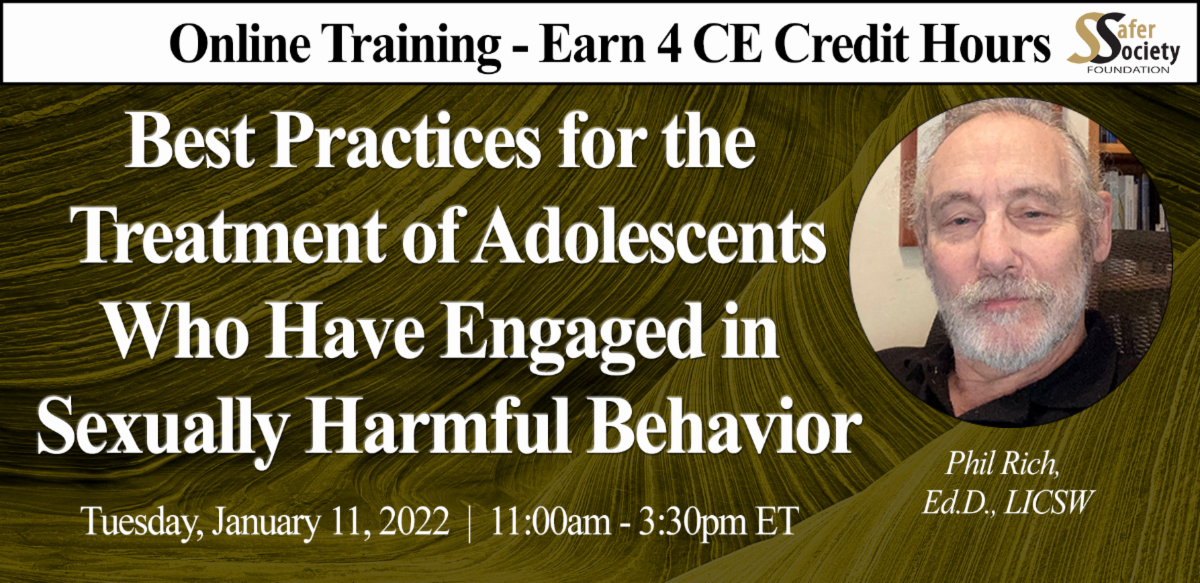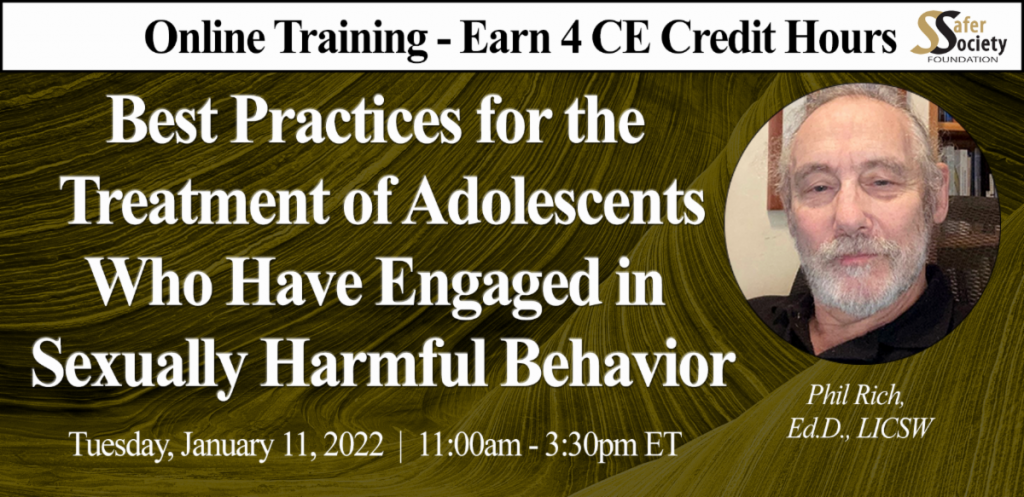
14 Dec Best Practices for the Treatment of Adolescents Who Have Engaged in Sexually Harmful Behavior

4 CE Credit Hours / CE Eligibility: APA Psychology, NBCC Counseling
From 11:00 AM until 3:30 PM ET
Click here to learn more and register.
$100
Presented by Safer Society Press / info@safersociety.org
This workshop will examine the evolution of how professionals have understood young people who engage in sexually harmful behavior. It will also explore the treatment we provide for sexually abusive behavior by adolescents.
Current practices (including those reflected in ATSA’s 2017 adolescent practice guidelines) are substantially different now than the assessment and treatment methods that first guided treatment. We’ve seen a realignment of the ideas and beliefs that drive assessment, treatment, and case management, and the way we think about the young people with whom we work.
Topics to be covered include:
1) Treatment of the whole individual
2) Person-first language in treatment
3) Elements of treatment for sexually abusive behavior
4) The practice of evidence-based/ best practices sexual-behavior specific treatment
5) The therapeutic relationship and collaboration in treatment
6) Treatment in the ecological environment
7) Approaches to sexual-behavior-specific treatment with adolescents
8) Therapeutic process and content in the treatment of sexually abusive
behavior
9) Adolescent sexual risk assessment
As a result of this training, participants will be better able to:
1) Explain contemporary approaches to the treatment of adolescent sexually abusive behavior.
2) Utilize a Best Practices approach to the treatment of adolescent sexually abusive behavior
3) Explain those elements of treatment central to a contemporary model of treatment for adolescents who engage in sexually abusive behavior
4) Create strong and effective therapeutic alliances in their treatment of adolescent sexually harmful behavior
5) Apply ATSA’s 2017 adolescent guidelines to their own professional practices
6) Describe key differences between adult and adolescent models of treatment

